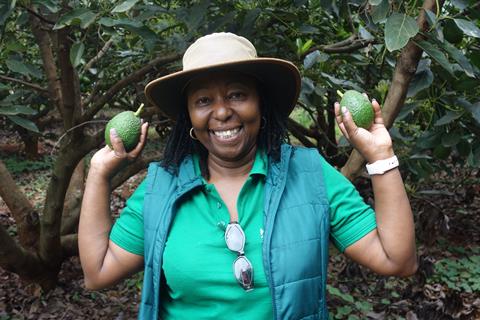Kenya’s avocado growers are set to benefit from a major boost in processing capacity in Nairobi.

Karakuta Fresh Produce has commissioned a modern packhouse capable of handling 7,500 tonnes of fruit, bringing together produce from its own 180-acre demonstration farm and from more than 1,500 smallholder partners in Kiambu, Nyeri, Kirinyaga, and Meru counties.
This investment responds to long-standing quality hurdles that have kept Kenya from fully capitalizing on booming global demand. By centralizing grading and packing under one roof, Karakuta aims to deliver consistently top-grade avocados to buyers around the world while driving stronger returns for the farmers who supply the facility.
Karakuta began by exporting eight containers of avocados in its first harvest season and is now targeting 60 containers for 2025.
Speaking at the launch, Karakuta CEO Grace Ngungi said the facility would do more than just process fruit. “This packhouse is not just an infrastructure investment — it’s a platform for transforming livelihoods,” she noted. “By combining modern machinery with smallholder networks, we’re ensuring our fruit meets global standards for quality and traceability.”
Grace Ngugi added that the new packhouse will benefit farmers directly. “This facility enables us to consistently meet the quality requirements of export markets and empower smallholder farmers with better returns,” she said. “We want every farmer who works with us to feel they own a piece of this success.”
Central to the operation is an Eshel Eilon machine from Israel, one of only 52 in Kenya, which will grade and pack the avocados for export. The project was made possible through financing from Equity Group. Its CEO, Dr. James Mwangi, praised the move as a bold example of agricultural industrialization.
The launch is part of a wider shift in Kenya’s agriculture sector toward value addition and export-driven processing. It also reflects Equity Group’s growing investment in agriculture through its Africa Recovery and Resilience Plan.
“Value addition like this creates more jobs and multiplies income along the value chain,” Mwangi said. “Karakuta is showing us that scaling is possible, and that women-led agribusinesses are bankable and transformational… Quality and consistency are what global markets demand,” Mwangi added. “Karakuta’s journey shows what’s possible when ambition meets the right support. This kind of investment unlocks value far beyond primary production.”
Avocado sector players welcomed the development. Dr. Christine Chesaro from the Horticultural Crops Directorate (HCD) urged exporters to prioritize both emerging markets and strict quality standards, while Joseph Wagurah, CEO of the Avocado Exporters Association of Kenya, encouraged smallholder farmers to form organized groups to simplify training and standardization.
